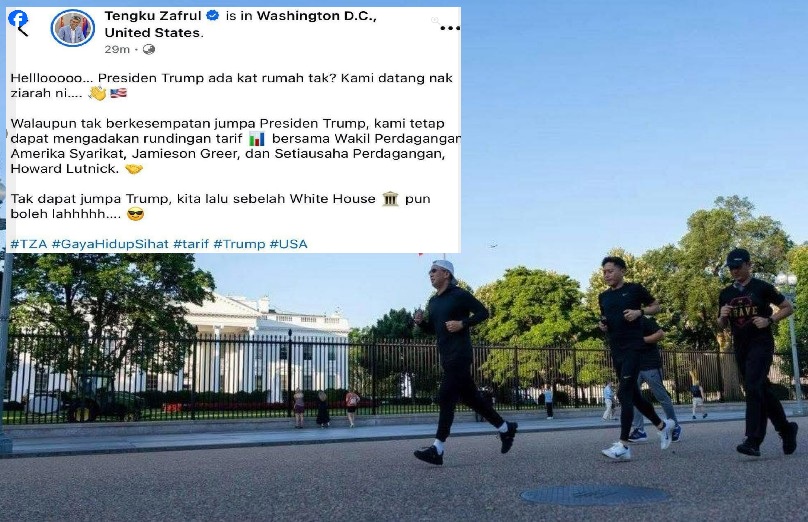THE Merriam-Webster Legal Dictionary defines high crime as “a crime of infamous nature contrary to public morality but not technically constituting a felony”.
In the US, it is seen by the Senate as adequate ground as an offence to remove the president, vice president, or any civil officer as a person unfit to hold public office and deserving of impeachment.
The charge of high crimes covers allegations of misconduct by officials, including ordinary crimes, but perhaps with different standards of proof and punishment than for non-officials, on the grounds that more is expected of officials by their oaths of office.
The charges against former prime minister Datuk Seri Najib Razak in the SRC International case fit this definition of high crime.
Since he was charged when he was no longer the prime minister, the question of removing him as the prime minister does not arise.
But despite being convicted, Najib still remains an MP. The spectre of the former prime minister becoming the chief executive of the government once again is always there by virtue of being an MP.
Moreover, Najib also has made it clear of this ambition to become the prime minister again.
There is nothing wrong in this ambition, just that it could create a situation of a conflict of interest under a scenario of becoming a prime minister amid a situation where his appeal trial is still in progress.
This conflict of interest arises because the on-going appeal trial would then involve someone who is going to be the prime minister or has become one.
Would the Attorney-General (AG) then be pressured to drop the case?
Lest someone would say that this is analogous to the Lim Guan Eng case, it is not. In Lim case, he hasn’t been convicted yet when he was appointed as the Finance Minister or when his case was dropped by the then-AG.

As it is, the threshold laid down by the Constitution under Article 48(1)(e) for the disqualification of an MP is “imprisonment for a term of not less than one year or a fine of not less than two thousand ringgit”.
This covers both the lesser crime for instance imprisonment of three years or a fine of RM3,000, and high crime for example a jail term of 8 years or a fine of RM20,000.
But the effective date of the disqualification is linked to the appeal process i.e. “14 days from the date on which such appeal or other court proceeding is disposed of by the court”, according to Article 48(4)(b) of the Constitution.
So to prevent such a scenario of a conflict of interest from happening, those involved in high crime and have already been convicted of it should be suspended from their MP position with immediate effect, regardless of whether they appeal or not.
Under the present situation, the suspension cannot be done because of Article 48(4)(b) which links the disqualification to the appeal process.
If you can’t disqualify people because of the appeal process, what more suspending them.
But this legal impediment can be overcome via an amendment to the Constitution delinking the suspension from the appeal process and specifying the minimum quantum of fine and term of imprisonment for high crime.
Once the Appeal Court or the Federal Court overturns the conviction, the suspension is rescinded with immediate effect, and the suspended MP resumes his or her duty as an MP.
This suspension does not affect the person’s right to appeal or the right to apply for a stay of execution.
Neither is this against the principle of natural justice. Otherwise the delinking of the appeal process from the disqualification of taking part in a general election through nomination, election or appointment of any person to either House of Parliament by mere conviction should also be construed as against the principle of natural justice.
By virtue of Article 48(5) of the Federal Constitution, which states that a conviction is enough to disqualify an MP “for the purpose of nomination, election or appointment of any person to either House of Parliament”, Najib has already been disqualified from taking part in the 15th General Election (GE15) if GE15 is held any time before the Federal Court decides on his appeal.
This means Barisan Nasional cannot field him as the candidate for Pekan or any other constituencies if GE15 is held before the Federal Court decides on his appeal case.
But what happens if the Federal Court later after GE 15 overturns the decision of the High Court? Then too bad for Najib, he just misses the boat as far as GE15 is concerned.
However, if GE15 is held after the Federal Court decides on his appeal, and in the event the Federal Court overturns the guilty decision of the High Court, then of course he can take part in GE15. — Dec 24, 2021
Jamari Mohtar is the Editor of Let’s Talk!, an e-newsletter on current affairs.
The views expressed are solely of the author and do not necessarily reflect those of Focus Malaysia.









